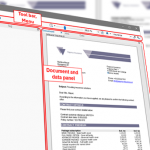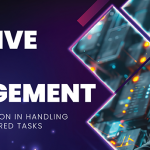What’s the problem with COBOL, Java or Python?
Most of us, as soon as we see mainframe and COBOL think Yeuch! Code from the 1960s? Does the fact that it is 60 years old make it bad?
COBOL is good for transactions even if it’s more than half a century old. There are at least 1.1 million CICS transactions (written in COBOL) run every second of every day! There are only about 59,421 Google searches every second globally.
Python was developed in the late 1980s, heavily used in banking, finance, insurance and healthcare and more popular than ever because of Artificial Intelligence.
JAVA, a nearly 30-year-old language developed by Sun Microsystems in the 1990s, got its popularity because of its Write Once, Run Anywhere approach and is used for many enterprise-level applications that are still in use and maintained.
COBOL and digital transformation
It’s no secret that in an era of ongoing technical advancements, organizations are under increasing pressure to innovate. Yet core IT systems, written in COBOL, Java, Python, cannot afford to fail – they deliver too much value to be simply ripped out and replaced in the face of digital disruption.
Most of our customers rely on such enterprise applications, and in a recent survey, over 92% of respondents believe their existing COBOL applications are even more strategic to their business in 2020, up from 85% in 2017.
Does this mean those companies are not undertaking the Digital Journey? Wrong, most of them have actually started more than 20 years ago by decoupling the communication and communication channel from their legacy code using the Papyrus Platform for their Customer Communication Management.
We have seen early on that to be successful with decoupling, seamless integration with those legacy applications is required. Seamless meaning no additional effort and risk as there should be no technical need to change those legacy systems just because a CCM solution is put in place.
This requires that the digital platform providing the technologies for digitization of content, delivery and process can integrate loose-coupled API’s that are able to handle different data types. This way, EBCDIC, ASCII and different data or message formats, such as fix position (COBOL copybook), delimiter separated values, XML, and JSON can be integrated with support for DB2, Oracle and MS SQL database.
To conclude, there is no problem with COBOL or Java or Python as long they are used in a way that fits their purpose. Use a Digital Platform to travel the Digital Transformation Journey and make sure it integrates seamless with your legacy applications.

Senior Executive at Papyrus Software






